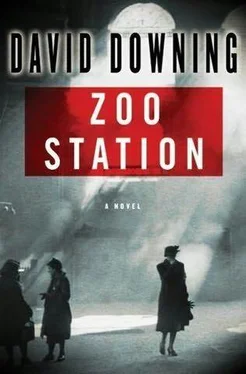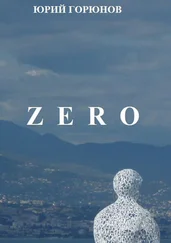David Downing - Zero Station
Здесь есть возможность читать онлайн «David Downing - Zero Station» весь текст электронной книги совершенно бесплатно (целиком полную версию без сокращений). В некоторых случаях можно слушать аудио, скачать через торрент в формате fb2 и присутствует краткое содержание. Жанр: Шпионский детектив, на английском языке. Описание произведения, (предисловие) а так же отзывы посетителей доступны на портале библиотеки ЛибКат.
- Название:Zero Station
- Автор:
- Жанр:
- Год:неизвестен
- ISBN:нет данных
- Рейтинг книги:5 / 5. Голосов: 1
-
Избранное:Добавить в избранное
- Отзывы:
-
Ваша оценка:
- 100
- 1
- 2
- 3
- 4
- 5
Zero Station: краткое содержание, описание и аннотация
Предлагаем к чтению аннотацию, описание, краткое содержание или предисловие (зависит от того, что написал сам автор книги «Zero Station»). Если вы не нашли необходимую информацию о книге — напишите в комментариях, мы постараемся отыскать её.
Zero Station — читать онлайн бесплатно полную книгу (весь текст) целиком
Ниже представлен текст книги, разбитый по страницам. Система сохранения места последней прочитанной страницы, позволяет с удобством читать онлайн бесплатно книгу «Zero Station», без необходимости каждый раз заново искать на чём Вы остановились. Поставьте закладку, и сможете в любой момент перейти на страницу, на которой закончили чтение.
Интервал:
Закладка:
He would write Shchepkin’s articles. See where the journey took him. Into the blue. Or into the black.
Ha! Ho! He!
Russell’s train steamed across the bridge over Friedrichstrasse and into the station of the same name just before eight in the morning. An eastbound Stadtbahn train was disgorging its morning load on the other side of the island platform, and he stood behind the stairwell waiting for the crowd to clear. On the other side of the tracks an angry local was shaking a toasted almond machine in the vain hope that his coin would be returned. A railway official intervened and the two men stood there shouting at each other.
Welcome to Berlin, Russell thought.
He took the steps down to the underground concourse, bought a newspaper at the waiting room kiosk, and found himself a seat in the station buffet. The sight of his neighbor, a stout man in an Orpo uniform, cramming his mouth with large slices of blood sausage, did nothing for Russell’s appetite, and he settled for a buttered roll and four-fruit jam with his large milky coffee.
His newspaper shielded him from the blood sausage eater, but not from Nazi reality. He dutifully read Goebbels’s latest speech on the vibrancy of modern German culture, but there was nothing new in it. More anti-Jewish laws had come into force on the first: Driving automobiles, working in retail, and making craft goods had all been added to the verboten list. Russell wondered what was left. Emigration, he supposed. So why make it so hard for the poor bastards to leave?
He skimmed through the rest. More villages judenfrei, more kilometers of autobahn, more indignation about Polish behavior in the Corridor. A new U-boat epic at the cinema, children collecting old tin cans for Winter Relief, a new recipe for the monthly one-pot-stew. A Reich that will last a thousand years. Six down, nine hundred and ninety-four to go.
He thought about taking the U-bahn but decided he needed some exercise. Emerging onto Friedrichstrasse he found the remains of the last snowfall dribbling into the gutters. A ribbon of pale sunlight was inching down the upper walls on the eastern side of the street, but the street itself was still sunk in shadows. Little knots of people were gathered at the doors of about-to-open shops, many of them talking in that loud, insistent manner which non-Berliners found so annoying in the capital’s inhabitants.
It was a three kilometer walk to his rooms near Hallesches Tor. He crossed Unter den Linden by the Cafй Bauer, and strode south through the financial district, toward the bridge which carried the elevated U-bahn over Mohrenstrasse. Berlin was not a beautiful city, but the rows of gray stone buildings had a solidity, a dependability, about them.
On one corner of Leipzigerstrasse a frankfurter stall was gushing steam into the air, on another the astrologer whom Effi sometimes consulted was busy erecting his canvas booth. The man claimed he’d prepared a chart for Hitler in pre-Fьhrer days, but refused to divulge what was in it. Nothing good, Russell suspected.
Another kilometer and he was turning off Friedrichstrasse, cutting through the side streets to Neuenburgerstrasse and his apartment block. Walking south from Leipzigerstrasse was like walking down a ladder of social class, and the area in which he lived was still hoping for a visit from the twentieth century. Most of the apartment blocks were five storeys high, and each pair boasted a high brick archway leading into a dark well of a courtyard. A bedraggled birch tree stood in his, still clinging to its mantle of snow.
The concierge’s door was open, light spilling into the dark lobby. Russell knocked, and Frau Heidegger emerged almost instantly, her frown turning to a smile when she saw who it was. “Herr Russell! You said you would be back yesterday. We were beginning to worry.”
“I tried to telephone,” he lied. “But…”
“Ah, the Poles,” Frau Heidegger said resignedly, as if nothing better could be expected from her neighbors to the east. She wiped her hands on her apron and ushered him in. “Come, you must have a coffee.”
Accepting was easier than refusing. He took the proffered seat in her living room and gazed about him as she re-heated-for the last of heaven’s know how many times-her eternal pot of coffee. Her Advent wreath was still hanging from the light fixture along with its four gutted candles. On the walnut chest of drawers two packs of cards stood beside her precious People’s Radio. It was Tuesday, Russell realized, the day Frau Heidegger and three of her counterparts from the nearby blocks played skat.
She came back with the coffee and a small pile of post. A postcard from Paul, a probable Christmas card from his mother in the US, a letter from his American agent, and a business letter with a Berlin postmark.
“You had two telephone messages,” the concierge said, looking down through her pince-nez at a small piece of paper. “Your fiancйe”-Frau Heidegger always referred to Effi in that way, despite the fact that no prospective marriage had ever been mentioned-“says she will be back extremely late on Thursday night and will meet you at the Cafй Uhlandeck at noon on Friday. Does that sound right?”
“Yes.”
“And a Herr Conway-yes?-he would like you to call him as soon as possible.”
“I’ll call him after I’ve had my coffee,” Russell said, taking a first exploratory sip. It was burned, but so strong and sweet that you hardly noticed.
Frau Heidegger was telling him how she’d recently caught one of the tenants-the Sudeten German on the first floor who Russell hardly knew-opening a window. This was strictly forbidden when the heating was on, and the tenant had only been forgiven on the grounds that he came “from the mountains” and could hardly be expected to know any better. He didn’t know how lucky he was, Russell thought; his own rooms on the fourth floor sometimes resembled neighboring ovens. During one warm week in December he had regularly set his alarm for 3:00 AM, when the concierge was fairly certain to be asleep and he could throw open his windows for a life-saving blast of cool air.
He took another sip of coffee and wondered whether the war minister would be interested in developing it as a weapon. “Thank you, Frau Heidegger,” he said, carefully replacing the cup in its saucer and getting to his feet. “I already had two cups at the station,” he added in excuse.
“It’s good to have you back,” she said, following him to the door. She didn’t close it, though. She might miss something.
Russell walked over to the telephone at the foot of the stairs. Its installation a couple of years earlier had given Frau Heidegger cause for pride-her block was leading the way on Neuenburgerstrasse. But it had soon turned into something of a mixed blessing. A popular propensity for ringing at all times of the day and night had necessitated the introduction of a curfew, and the phone was now off the hook from ten at night till eight in the morning. It could still be used for outgoing calls during that time, but heaven help anyone who forgot to take it off again.
He unhooked the earpiece and dialed the British embassy’s number. Doug Conway worked in the commercial department, or so he claimed. Russell had met him at the Blau-Weiss club, where English-speaking expatriates played tennis, talked about how beastly their German hosts were, and lamented the lack of reliable domestic help. Russell hated the place, but time spent there was often good for business. As a journalist he had made a lot of useful contacts; as a part-time English tutor he had been pointed in the direction of several clients. He hoped Doug Conway had found him another.
“I’m rushed off my feet today,” Conway told him. “But I can squeeze in an early lunch. Wertheim at 12:30?”
Читать дальшеИнтервал:
Закладка:
Похожие книги на «Zero Station»
Представляем Вашему вниманию похожие книги на «Zero Station» списком для выбора. Мы отобрали схожую по названию и смыслу литературу в надежде предоставить читателям больше вариантов отыскать новые, интересные, ещё непрочитанные произведения.
Обсуждение, отзывы о книге «Zero Station» и просто собственные мнения читателей. Оставьте ваши комментарии, напишите, что Вы думаете о произведении, его смысле или главных героях. Укажите что конкретно понравилось, а что нет, и почему Вы так считаете.












